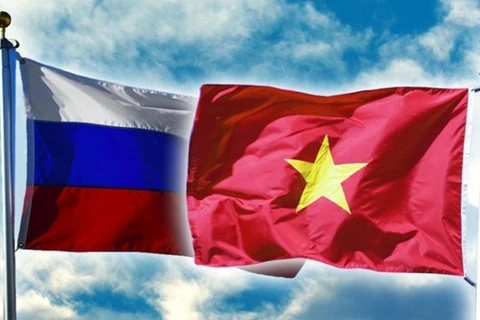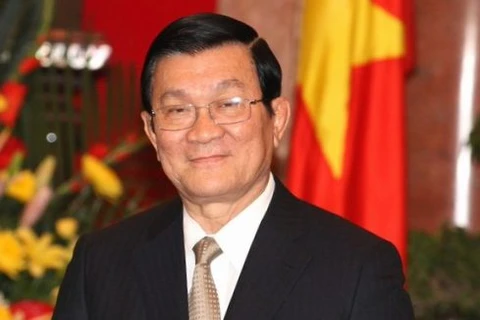 President Truong Tan Sang visited Army Corps 1 in the northern province of Ninh Binh on March 20. (Photo: VNA)
President Truong Tan Sang visited Army Corps 1 in the northern province of Ninh Binh on March 20. (Photo: VNA)Ninh Binh (VNA) – President Truong Tan Sang visited Army Corps 1, the first key mobile force of the Vietnam People’s Army, in the northern province of Ninh Binh on March 20.
Founded on October 24, 1973, Army Corps 1 was tasked with safeguarding the north – the country’s strategic rear base – while providing logistics and technical support for the battlefields during the 1975 Spring General Offensive that ended with the victory of the Ho Chi Minh Campaign.
It launched a speedy operation over 1,700km from the north to the south in just 11 days. With the guiding ideologies of speed, audacity and surprise, the corps occupied strategic targets in the enemy’s defence system, contributing to Saigon – Gia Dinh’s liberation.
The President asked the corps staff to serve as a think tank for the Party Central Committee’s Military Commission and Defence Ministry.
Along with building a strong and healthy Party unit, the staff should pay attention to mass mobilisation, he said.
In the lead-up to the 41st anniversary of southern liberation and national reunification (April 30), the leader urged the staff to score new victories and elect the most qualified candidates to the National Assembly and People’s Councils in the foreseeable future.
Visiting the provincial Military Command, he requested upholding heroic traditions and offering sound, timely advices to local authorities in any case, toward fulfilling the goals of national construction and development.
During a working session with provincial authorities, the President hailed the province for putting in place a resolution set by the local Party Congresses.
Ninh Binh has identified three breakthrough stages and seven key steps for socio-economic development and national defence.
Since 2015, agricultural production has risen to 8 trillion VND, and 40 out of 119 communes have met criteria for new-style rural areas.
The industrial production value also increased 21 percent year-on-year.
The President urged Ninh Binh to farm using its strengths and recent technological advances.
Amid a pressing need to shore up support industry suppliers, he asked to increase the production of domestically made components in the product value chain to catch up with other ASEAN states.
He also underscored the need to preserve and maintain the cultural and historical values of relic sites, and offer new tourism products to attract visitors from home and abroad.
While in the province, he also offered incense at temples dedicated to the Dinh and Le Dai Hanh Kings, and a monument honouring King Ly Cong Uan, who decided to move the ancient capital to Thang Long – now called Hanoi – in 1010.-VNA






















